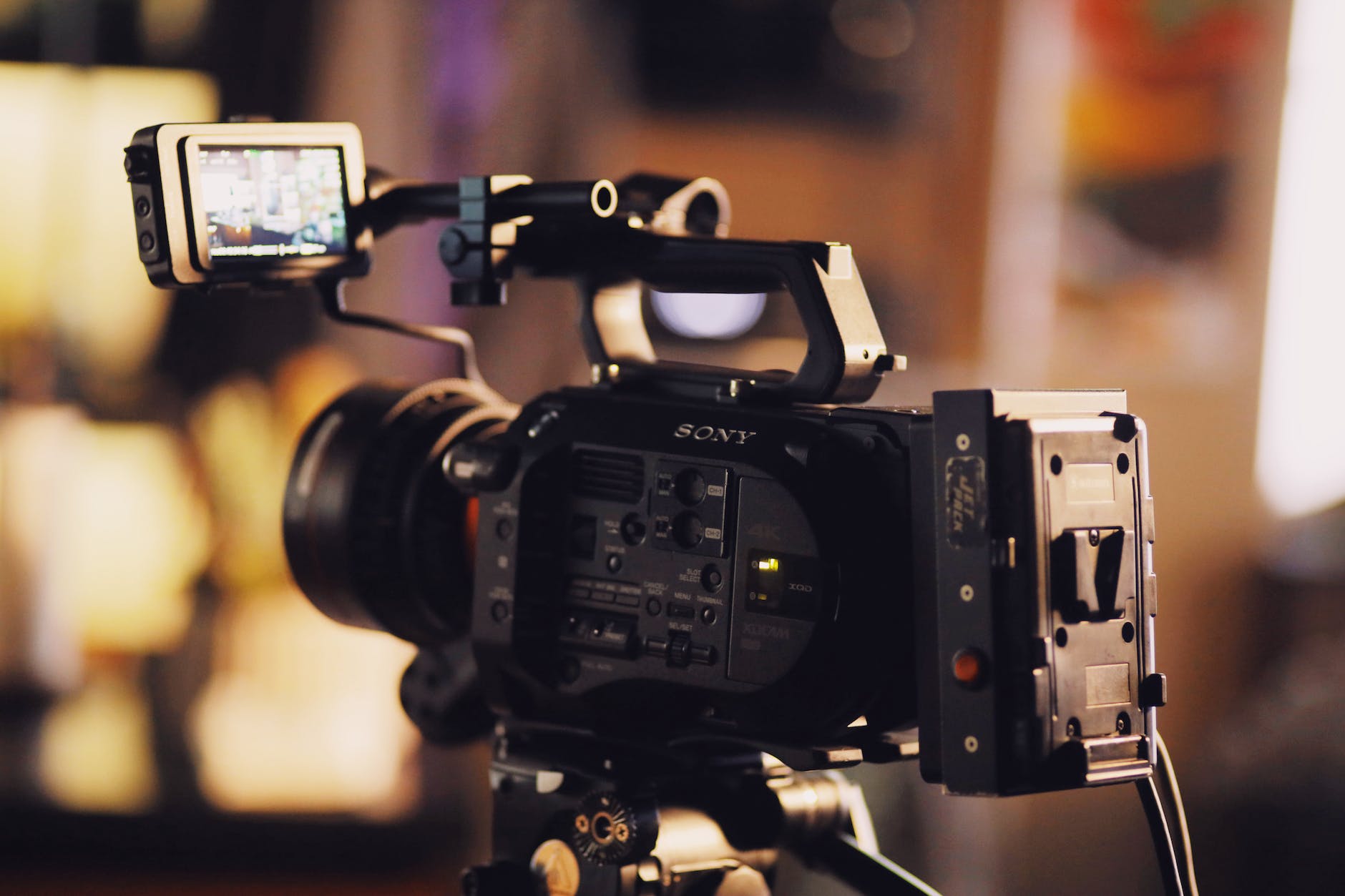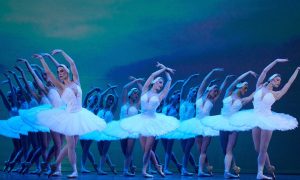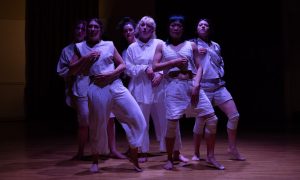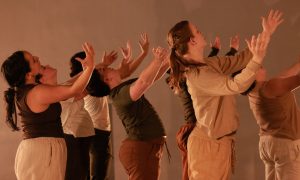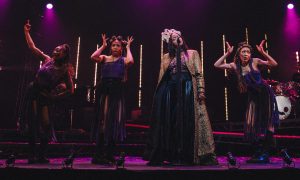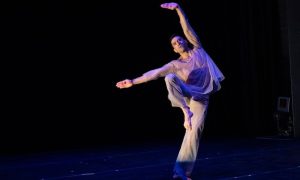An April Fools’ joke played by Steps on Broadway a couple months ago struck a nerve with its dance community – a nerve that the New York dance studio didn’t seem to be aware of. A “No Filming” announcement for all Steps classes, communicated via Instagram post, elicited a tidal wave of responses from dancers who take class there. What was intended to be a lighthearted ‘gotcha’ instead had the opposite effect. We’re not here to dig into the drama, but it did spark a conversation in the comment section that it looks like needs to be had: is it fair to film dance classes?
Filming has its purposes for dancers: reflecting on technique and performance, learning how to dance for camera, gathering reel footage, and collecting marketing materials to post on social media. It also has its uses for studios – they use it as marketing material, too. The problem arises when studios aren’t transparent about which classes will be filmed, eat up paid class time to film select students and charge dancers a class fee while using their image as marketing material for the studio. Even with film waivers in place (release forms that note the signing party’s consent to have their image used), some dancers expressed that they felt exploited – especially when they had trouble getting a hold of the footage for themselves.
The main protest was this: dancers go to class to learn, and it should be a safe space to train and make mistakes. Filming content that is put out to the public (where choreographers, casting directors, teachers or even just fellow dancers might come across it) isn’t what dancers are signing up for. It was also argued that filming the combination at the end of class takes up time – time that dancers have paid for to run the combo as many times as they can.
The conversation sparked and spread on Instagram, at first just in the comments section of the original April Fools’ post. But when Steps deleted that post and blocked select commenters, dancers in the community continued the conversation on their Instagram stories. Al Blackstone, renowned New York choreographer and teacher at Steps on Broadway, added his input through an Instagram post that read:
“I feel very upset about what happened today on Instagram regarding a joke made about filming classes (a very important topic). But I’m even more upset that people are being blocked for sharing their feelings about the subject. These are your classes and you have every right to speak your feelings about what happens in them. Feel free to comment below.”
Blackstone held space for dancers to express and be heard. Using his platform as an amplifier, he reposted stories and input about the situation. The ensuing discussion noted some of the issues dancers have with current filming protocols, but it also prompted possible solutions.
@kelseyhconnolly: “I no longer personally feel (Steps) is a safe space to hone your craft, and do the nitty gritty unglamorous hard work that comes with training before stepping in to the audition room or on stage… I understand how filming allows the opportunity to put yourself out there with casting, etc. – but there are some days when that’s not the goal.”
@kailiesanders: “…many teachers only pick their friends or select dancers to film at the end of class, leaving many dancers standing on the side for the last 15 mins of a class that they paid for. Maybe classes should be limited to filming a lower number of times per month with a filming notification on the class schedule/website in advance.”
@beauharmon_: “Spotlight classes,” masterclass workshops run by Steps, “are the perfect outlet to be able to get this specific type of training.”
@frannnerisms: “There are countless videos from classes I have never managed to get… Dancers are tired of being unnamed dancer number 5, desperately trying to screen record or re-record something that they cannot get footage to.”
@katierosesteph: “…you as a teacher, studio owner, etc. are commodifying student’s time, image, experience, skill, and effort – all while asking $25+ rather than paying them for these services… Enact a reduced rate fee for ‘classes’ that include filming.”
@Nat_cat96 comically added, “Please let me learn hip hop in peace. I started at age 25, I just learned how to bend my knees, I live in fear.”
After Steps deleted its initial post, the studio re-engaged with a more open approach, posting instead:
“Today’s earlier ‘April Fool’s Day’ post about inviting cameras into class was met with confusion, emotion, and a dialogue that yielded important feedback about our practices… We value the feedback and experiences of our Steps family and will take new measures to ensure transparency about our filming practice. Currently, all our filming is approved by teachers and planned at least 24 hours in advance, and waivers are signed by students. Moving forward, Steps will add a camera icon next to all our classes being filmed on our daily stories. We will also implement new scheduling protocols for our digital team to utilise less class time to capture footage to ensure that no class experience is compromised for any student. We proudly share and celebrate the magic that happens among our faculty and students in our classes, and will continue to keep an open dialogue so we can continue to uplift our community or artists in any way we can.”
The comment section under this new post allowed space for the conversation to continue in a field where people knew Steps was hearing them. There was discourse directly between the studio and the students about possible solutions, like alternating filming weeks and using Dropbox to distribute footage.
What we learn from Steps’ second post, once the studio took the time to take stock of its community’s reaction, is that an open dialogue is needed to solve this issue. Blackstone showed that dancers’ input is not to be dismissed, and their insight is invaluable as we wade through the politics of dance class and social media. Keeping lines of communication open and empowering dancers to speak up is the right way forward – not only in this aspect, but continually as the dance world evolves and dancers learn to advocate for themselves.
By Holly LaRoche of Dance Informa.


